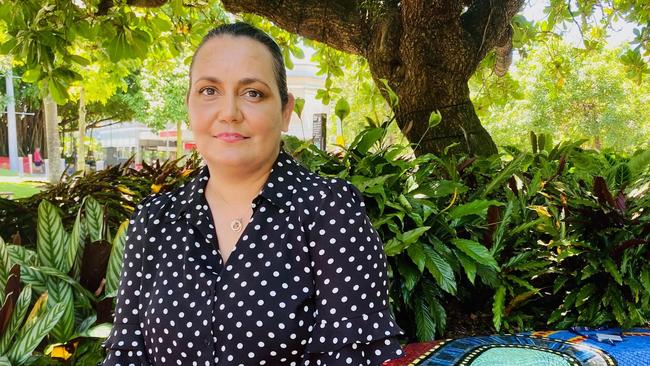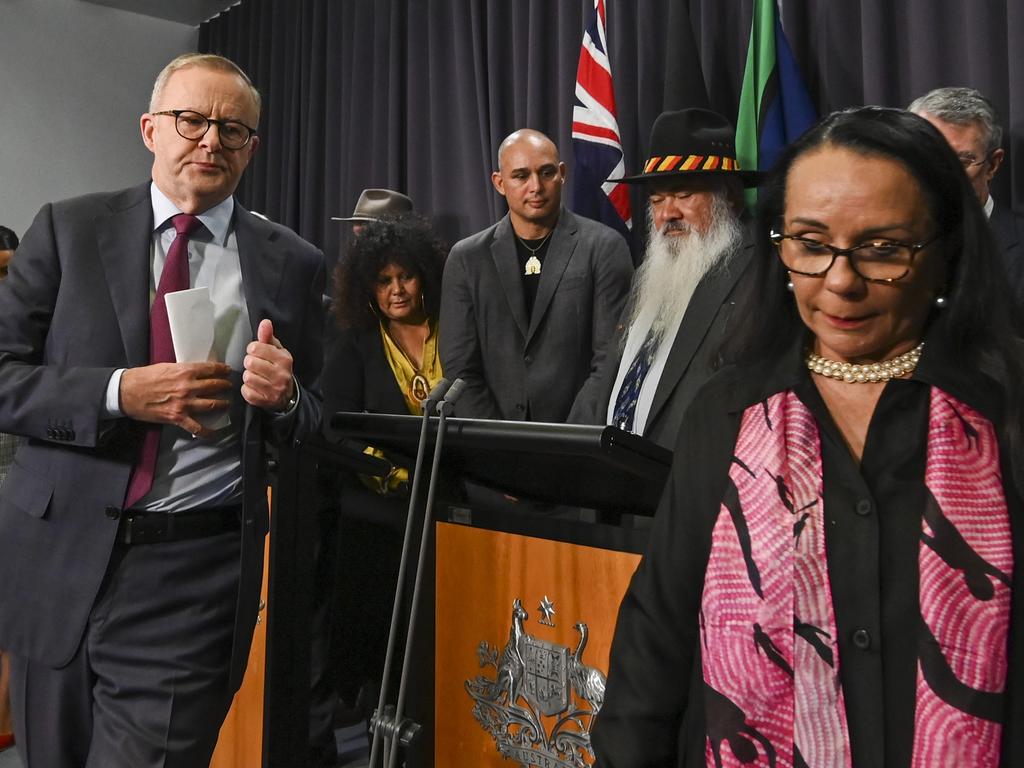Leaders eye Noel Pearson’s way on welfare quarantine program
Noel Pearson's welfare quarantine program that allows local leaders to refer people to compulsory income management in north Queensland could be replicated elsewhere.

Noel Pearson's pioneering welfare quarantine program that allows local leaders to refer people to compulsory income management in north Queensland could be replicated in other parts of the country following the abolition of the Cashless Debit Card.
Introduced in Cape York in 2008, the Family Responsibilities Commission has the power to quarantine an individual’s welfare payments if their child is absent from school or following notifications over child safety, domestic violence, tenancy issues and convictions.
Both the Northern Territory and federal governments said they were open to extending the program beyond the cape, with sources revealing senior commonwealth bureaucrats were pushing for its expansion behind the scene.
Closer examination of the FRC’s welfare control measures, which require state and federal support, began after the Albanese government fulfilled an election pledge to scrap compulsory income management last year.
The decision to axe the Cashless Debit Card last year came amid criticism it was ineffective and disproportionately affected Indigenous Australians. A new SmartCard income management program was rolled out across the country this month, which quarantines up to 50 per cent of welfare benefits, but only on a voluntary basis.
NT Families Minister Kate Worden said she was “open to discussing with the federal government any proposals to establish a family responsibilities commission in the Northern Territory”.
“The NT is interested in how these arrangements could benefit Territorians and would need to ensure any decisions are made in consultation with local Aboriginal people,” Ms Worden said.
Federal Social Services Minister Amanda Rishworth said: “If states and territories want to introduce legislation enabling local decision-making, which would include referrals to income management, the commonwealth would be happy to engage in those discussions.”
The FRC has been a contentious program in Queensland and was in danger of being axed by the Palaszczuk government in 2019. It is an open secret in the bureaucracy that some senior public servants want to see it scrapped.
In its recent annual report, the FRC outlined a submission to the Queensland government to make its voluntary scheme available throughout the state and a review of the scheme is still before Annastacia Palaszczuk's cabinet.
Unlike the Cashless Debit Scheme, which enforced income management on all welfare recipients in certain communities, Queensland’s FRC model only targets those who fail to meet certain community standards.
In FRC communities, local commissioners are notified if: a person’s child is absent from school three times during a term or is not enrolled in school; a person is the subject of a child safety report or is convicted of an offence; or someone breaches their tenancy agreement.
Commissioners, who are elders or community leaders, then have powers to make mandatory referrals to support services or put individuals on mandatory income management. FRC chief Tammy Williams said commissioners had powers to quarantine 60, 75 or 95 per cent of an individual’s income so it could not be spent on gambling, liquor or tobacco products.
“Our elders are the decision-makers and they can exercise income management as a last resort if it is in the best interest of children or vulnerable people,” Ms Williams said.
“All of our decisions, including income management, are time-limited and cannot be longer than 12 months. We‘re always available to share our learnings with others and that could include delegations coming over and seeing our work on the ground.”
In the five communities controlled by the FRC – Aurukun, Coen, Doomadgee, Hope Vale and Mossman Gorge – 69 per cent of people were on voluntary income management and 31 per cent were on mandated orders last year. Last financial year, there were 1024 people referred to the FRC. The bulk of notices came from poor school attendance followed by appearances in the magistrates court.
During the year, 665 clients were referred to the commission with only one type of notice and the remaining 359 received more than one type of notice. FRC made 138 mandatory referrals to support services and another 271 were voluntarily taken up.
In a 2021 review of the first 12 years of FRC operations, notices for child safety investigations decreased by 69 per cent, with children less likely to be removed from their families. Notices for serious criminal-offence convictions and tenancy breaches also decreased by 23 per cent and 32 per cent respectively. But school attendance – a key measure of the FRC’s success – was significantly down, largely due to Covid-19.
Queensland’s Aboriginal and Torres Strait Islander Partnerships Minister Craig Crawford said the FRC model had succeeded where other schemes had failed because of its engagement with Indigenous elders. “I would like to see a national approach and uniformity across states and territories around welfare management and the crossovers with child safety and school attendance,” he said.
“I appreciate there are strong views around the FRC and this kind of intervention, but I am not opposed to an expanded structure.”
A WA government spokesman said child-protection income management was available in parts of Western Australia, where 70 per cent of welfare could be quarantined to be spent on children’s needs.
“We will continue to work with the federal government on programs like this that help to protect children and support vulnerable families across WA,” the spokesman said.
There were 13,700 people forced onto the cashless debit card before it was scrapped. The Department of Social Services has refused to release data on how many have voluntarily moved onto the new SmartCard introduced on March 6.








To join the conversation, please log in. Don't have an account? Register
Join the conversation, you are commenting as Logout